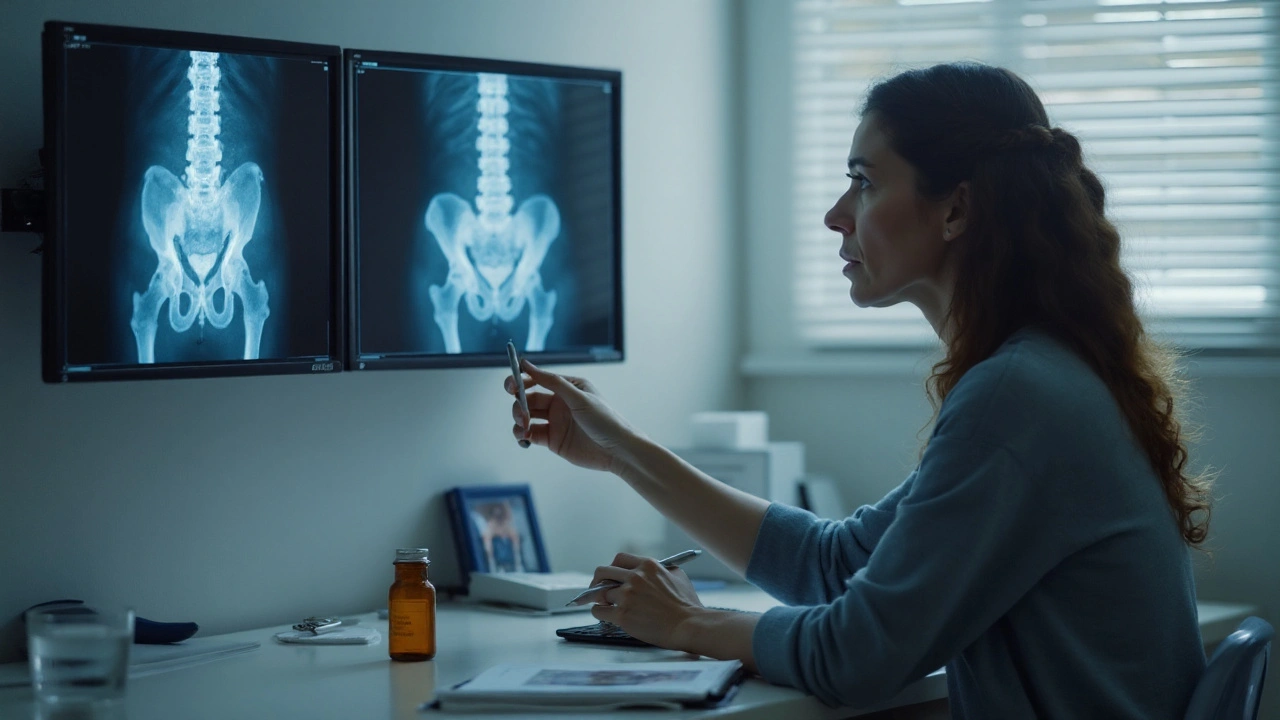Osteoporosis – What It Is and How to Fight It
Osteoporosis is a condition where bones become weak and break easily. It happens when the body loses more bone than it makes. Most people don’t feel any pain until a fracture occurs, so it’s easy to miss early on.
The biggest risk factors are age, being female, low calcium intake, lack of exercise, smoking and heavy drinking. If you have a family history or take steroids for a long time, watch your bones even closer.
Simple Lifestyle Changes That Strengthen Bones
Eating the right foods is the first step. Aim for three servings of dairy or fortified alternatives every day – that’s milk, cheese, yogurt or soy drinks with added calcium. Green veggies like broccoli and kale add extra calcium and magnesium.
Vitamin D helps your body absorb calcium. Spend a few minutes in sunlight each morning, or take a 1,000 IU supplement if you live where sun is scarce.
Exercise matters more than most people think. Weight‑bearing activities such as walking, jogging, dancing, or stair climbing make bones stronger. Add two to three strength‑training sessions per week – even simple body‑weight squats and push‑ups work.
Avoid smoking and keep alcohol below two drinks a day. Both habits speed up bone loss and make fractures more likely.
Medications and Supplements for Osteoporosis
If lifestyle changes aren’t enough, doctors have several medicines that can slow bone loss or even rebuild it. Bisphosphonates (like alendronate) are the most common first‑line drugs – they’re taken weekly or monthly as a pill.
Denosumab is an injection given every six months and works well for people who can’t tolerate pills. Hormone replacement therapy may help some post‑menopausal women, but it’s used only after weighing risks.
Supplements fill gaps you might miss in food. Calcium carbonate or citrate provides 1,000 mg a day, paired with vitamin D3 (800–1,000 IU). Some doctors also suggest magnesium or vitamin K2 for extra support.
Never start a new drug on your own. Talk to your pharmacist or doctor, ask about side effects, and get bone density tests to track progress.
Bottom line: protecting bone health is a mix of good food, regular movement, avoiding risky habits and, when needed, prescription meds. Start small – add a glass of milk, walk an extra block, schedule a check‑up – and you’ll give your skeleton the help it needs to stay strong.

